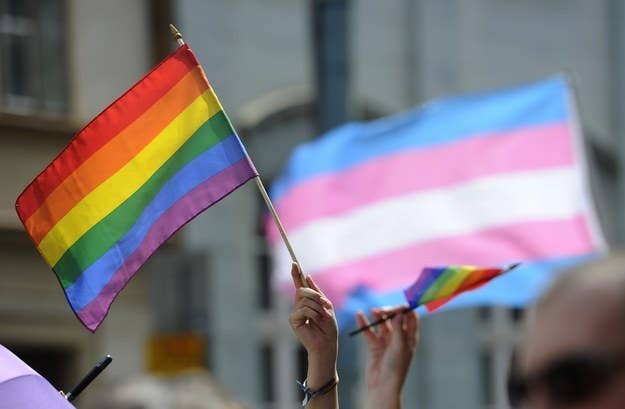
Now that the gay marriage battle has been won in the United States, the fight for LGBT rights finds itself at a turning point in its treatment of transgender people. Queers can either steadfastly work to benefit everyone in the community, or collect the resources they’ve amassed and leave the fight; if they choose the latter, they will no longer embody the political and social activism that has always been at the core of the queer rights movement.
The author Alexander Chee recently wrote in The New Republic, “My hope is that marriage equality queers marriage, rather than straightening queers — that we reinvent it and keep reinventing it, and sexuality is finally acknowledged as having no inherent moral value except, perhaps, when it is ignored.” But what Chee doesn’t account for is that marriage equality, which has seen a steady upswing throughout U.S. jurisdictions since 2004, has already straightened many queers into giving up the fight for equal rights for all LGBTQ people.
The first decade of same-sex marriages in the U.S. has been indelibly marked by queer assimilation into straight culture; as queers forged ahead, trans people have gotten left behind. But queers must remember that those in power who uphold our heterosexist and patriarchal society hate gay and trans people for the same reason —we challenge their fundamental assumptions about how we should behave based on our genders. The only difference is that queer people have managed to get mainstream society used to the idea that what queers do behind closed doors is their business.
Before I came to terms with my trans identity and underwent gender transition to live as a woman, I fought for marriage equality as a gay man in the 1990s in Massachusetts, which eventually became the first state to legalize gay marriage. I was partnered with Ralph Wedgwood, a philosophy professor who’s written extensively on the topic. He taught me to pay deep attention to the social dimensions of marriage, which in many ways have far greater effects than the legal rights that marriage bestows on people. And making those social dimensions available to gay people has always run the risk that queers will forget the history of persecution they came from.
Now is not the time to tap out. If queers become too comfortable in the belief that the war has been won, they will miss out on actively advancing the pressing issues that confront our trans-inclusive queer community, including the treatment of trans prisoners and detainees (which Jennicet Gutérrez highlighted this week when she interrupted President Obama’s Pride Month address). The battles ahead include making it easier for trans people to live as our true selves by abolishing laws that require us to have expensive surgery simply to change our names and gender markers on legal documents, and ensuring that insurance companies do not bar us from life-saving health care.
We also need to lobby for comprehensive protections for transgender people in the areas of employment, housing, education, and other civic institutions, so that we’re not at further risk of being left in desperate situations that lead so many of us to be depressed and suicidal. In the meantime, we must pour resources into transgender-specific suicide prevention, and take into full account the astronomical suicide attempt rates in the trans community, highlighted by Leelah Alcorn’s death late last year.
These issues have always been more pressing than marriage equality for the most vulnerable LGBT sector, and to continue to marginalize them now that the bans against same-sex marriage have been struck down would mean denying that gay and trans people have always and will always be part of the same community.
For those of you queer people who may doubt the connection: Think about how your struggle has a deep relationship to trans people like us. Maybe as a little boy there were dolls you wanted to play with, before you were told they’re “just for girls.” Maybe you were forced to wear a dress to a wedding as a young woman, even though you hadn’t worn a dress in years. Maybe you’re a man who spends hours at the gym trying to quiet all those voices in your head calling you a sissy for being feminine and weak. Maybe you’ve been called slurs in the streets because of your gender presentation, or because of the person whose hand you were holding. Despite our many differences, queer and trans people have so much in common, which is why we need to continue to fight for our rights as a unified community.
So will you forget about transgender people now that you’ve gotten ahead, or will you fight with us? Now that you can partake in the sacred institution of marriage, the best thing you can do is join the next battle for the rights of transgender people. In doing so, you will continue to fight not just for others, but for parts of yourselves.

